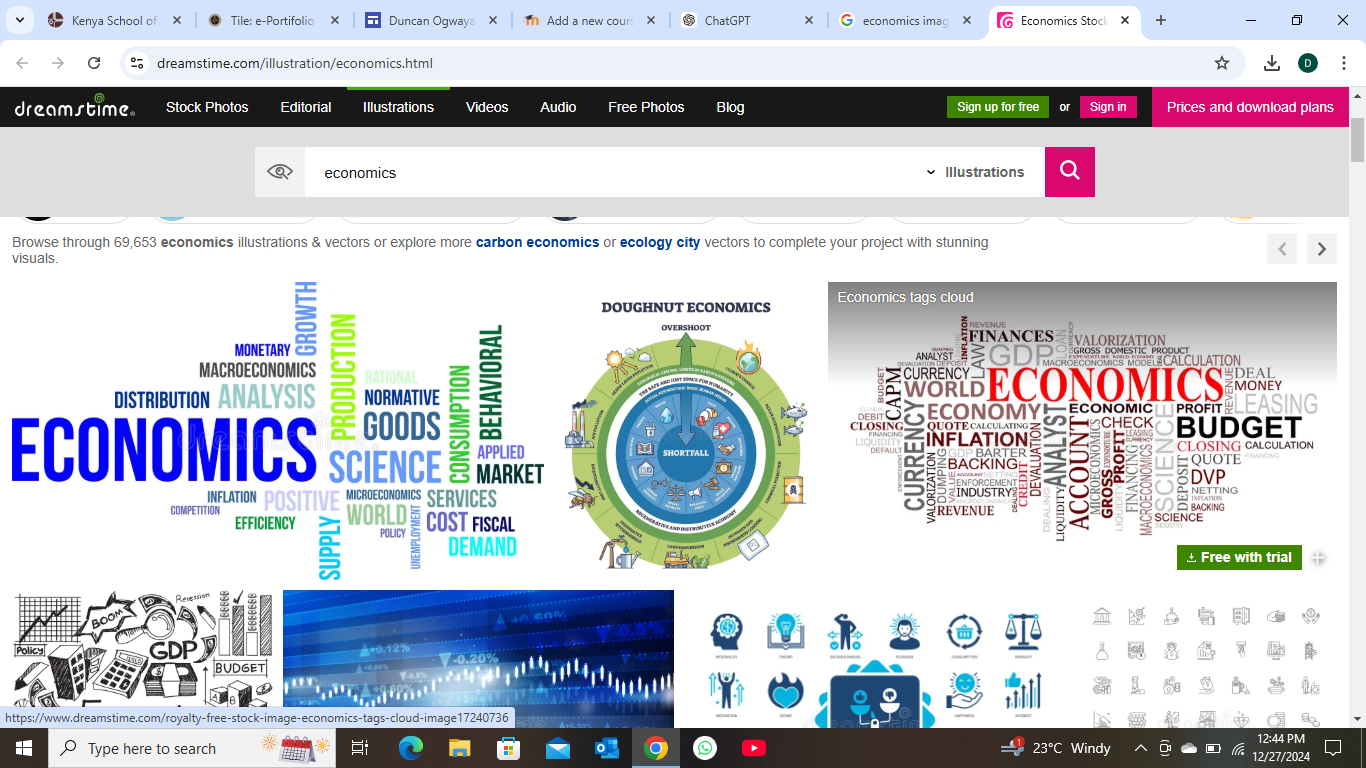This course offers an in-depth understanding of the principles, policies, and practices surrounding public procurement and finance. It is designed to equip students with the knowledge and skills necessary to manage public funds efficiently, ensure transparency in procurement processes, and understand the financial and legal frameworks that govern public sector spending. Students will explore the complexities of procurement management in government organizations, from planning to implementation, while also examining the financial management systems used to allocate, monitor, and evaluate public resources.
- Teacher: Admin User

Economics is the study of how individuals, businesses, governments, and societies make choices about allocating resources to satisfy their needs and wants. It deals with the production, distribution, and consumption of goods and services. Economics is typically divided into two main branches:
1. Microeconomics
Microeconomics focuses on the behavior of individual consumers, firms, and markets. It examines:
- Supply and Demand: The relationship between the quantity of goods and services producers are willing to sell and the quantity consumers are willing to buy at different prices.
- Market Structures: The types of markets in which firms operate, such as perfect competition, monopoly, oligopoly, and monopolistic competition.
- Consumer Behavior: How individuals make decisions based on preferences, income, and prices.
- Producer Behavior: How firms decide on the quantity of goods to produce and the pricing strategies they use.
- Elasticity: How sensitive demand or supply is to changes in price or other factors.
2. Macroeconomics
Macroeconomics looks at the economy as a whole, analyzing national and global economic trends. It focuses on:
- Gross Domestic Product (GDP): The total value of all goods and services produced within a country's borders.
- Inflation: The rate at which prices for goods and services rise, eroding purchasing power.
- Unemployment: The percentage of the workforce that is actively seeking work but unable to find employment.
- Monetary Policy: Actions by a country's central bank to control the money supply and interest rates to achieve economic stability.
- Fiscal Policy: Government spending and tax policies used to influence the economy, often aimed at controlling inflation, reducing unemployment, and encouraging growth.
- International Trade and Finance: The exchange of goods, services, and capital between countries, including the impact of exchange rates, trade agreements, and globalization.
Key Concepts in Economics:
- Opportunity Cost: The value of the next best alternative that must be forgone when making a decision.
- Scarcity: The basic economic problem that arises because resources are limited while human wants are virtually limitless.
- Efficiency: The optimal use of resources to produce the most goods and services.
- Equity: Fairness in the distribution of economic benefits.
- Market Failure: When the allocation of goods and services by a free market is not efficient, often due to externalities, public goods, or monopolies.
Key Economic Theories:
- Classical Economics: The idea that free markets lead to efficient outcomes and that government intervention should be minimal.
- Keynesian Economics: The theory that government intervention, such as fiscal and monetary policies, is necessary to manage economic fluctuations and reduce unemployment.
- Supply-Side Economics: The belief that reducing taxes and regulation on businesses will lead to increased production and economic growth.
- Behavioral Economics: The study of how psychological factors affect economic decision-making.
Economic Systems:
- Capitalism: An economic system based on private ownership and the free market where prices and production are determined by supply and demand.
- Socialism: An economic system where the government owns and controls major industries, and there is a focus on reducing inequality.
- Mixed Economy: A blend of capitalism and socialism, where some sectors are privately owned, and others are controlled by the government.
- Teacher: Admin User
Communication is the cornerstone of human interaction, enabling us to share ideas, build relationships, and solve problems.
1 This unit will explore the essential components of effective communication, including verbal and nonverbal cues, active listening, and intercultural communication.
- Teacher: Admin User